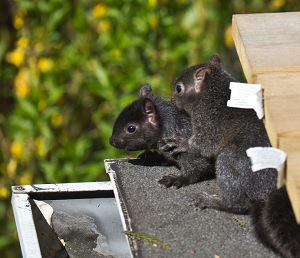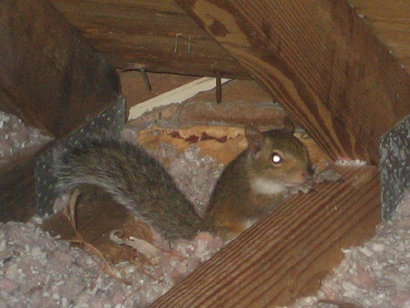I Have Baby Squirrels In My Attic

You will hear scampering and continuous scratching noises.
I have baby squirrels in my attic. The young must be dealt with as part of the removal process. Colonial is licensed in ma and nh to do nuisance animal control and we have many years of experience in dealing with squirrels in homes. The first sign of squirrels in the attic is the sounds that they produce especially during the day. Nest of baby squirrels in the attic yes pretty much every time you have squirrels in your attic it s actually a single female with a nest of baby squirrels.
Watch the exterior of your house and see if grown squirrels are accessing your attic carrying in food. Juvenile squirrels and sometimes adults may fall into wall cavities and be unable to climb out making persistent scratching noises as they try to escape and eventually dying if they can t. Carefully searching your attic for the nest is the most accurate way to be sure. During colder seasons mother squirrels may move into attics and other protected areas of buildings to raise their young.
To prevent this drive the squirrels out as soon as they make themselves known before they can give birth or set up shop. There are a number of ways to check for baby squirrels. Squirrels normally prefer to eat outside but will carry in food for their babies. If the mother squirrel dies where you can t reach her you will have an odor problem and you will still have babies to deal with.
This is the perfect opportunity to identify whether they are adult or baby squirrels. The first sign of a squirrel in the attic is usually the sound of scampering during the day as they come and go on foraging trips. If it is a mother squirrel you will come across a nest built of cardboard insulation and leaves. Females can have two litters per year.
The first litter of baby squirrels is born in late winter or early spring and the second around august.














































